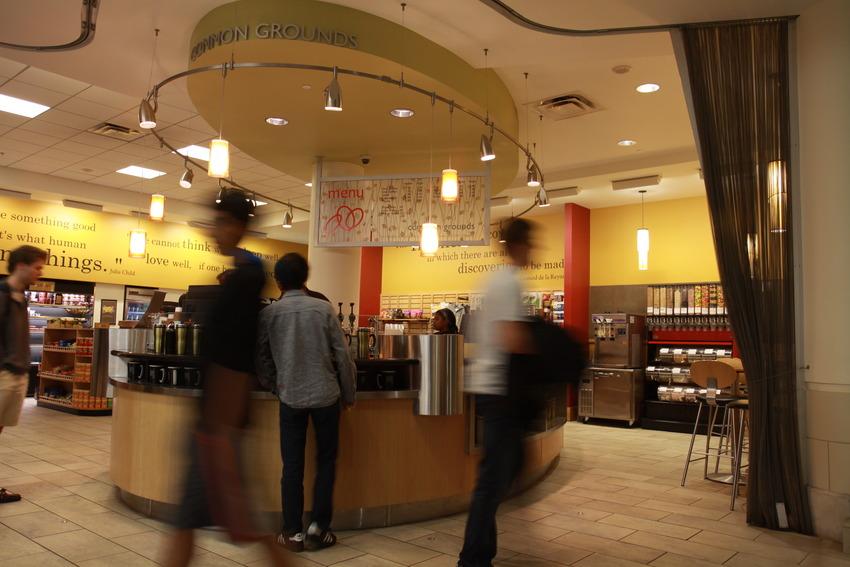Vanderbilt is the only university in the U.S. that operates markets, commonly known as “Munchie Marts” despite their official name change over thirteen years ago, as part of the meal plan. Students, however, continue to wonder how the markets could be improved.
Why do students have to use breakfast swipes before 11 a.m. on weekends? Why does an iced coffee count as an entrée? Is theft an issue in Munchie Marts?
One of the frequently contested issues is that munchie mart pricing is higher than that of large grocery stores. Having worked in the grocery store business prior to coming to Vanderbilt, Spiros Vergatos, the assistant director for the markets, notes that these larger stores buy truckloads of items, while the Vanderbilt markets purchase smaller quantities, which are consequently sold at a higher price.
“There is a misconception that we have the buying power of a grocery store,” Vergatos said.
Furthermore, the reason why small convenience stores have lower prices is because they make large profits off of popular goods such as cigarettes, beer, tobacco and gasoline, none of which the markets at Vanderbilt can sell.
In addition, pricing of specific items is not what Munchie Marts focus on. With over 90 percent of Munchie Mart sales tied to meal plans, more important is the decision of whether an item should count as an entrée or a side.
Many, in fact, have questioned the reasoning behind pre-bottled iced coffees, such as those made by Switters or Illy, being sold as an entrée, if iced coffee clearly isn’t a substantial meal for a student. When it comes down to choosing what is to be an entrée versus a side, the managers at Munchie Mart have to prioritize price.
“I would say the choice to have iced coffee as an entrée would be strictly for pricing,” Vergatos says, instead of for health. “Now, we do look for healthy items, but it just depends on where they fall on the price scale.”
The managers of the markets do keep their client’s preferences and needs in mind, sometimes at the expense of monetary losses. During Passover, for example, they actually lose money by providing certified kosher for Passover meals. In addition, the Munchie Marts are open 24 hours a day–in fact, the majority of purchases are made after 8 p.m.
Some students, however, argue that the meal plan is inflexible by forcing students to use only one swipe in each of the four meal plan periods. Vanderbilt tries to counter this issue by providing non-first year students with $3.15 in meal money for each unused meal swipe left at the end of the week.
Because the meal periods allow Dining Services to predict the traffic through the dining locations, a lack of meal periods altogether would create difficulties. Without structured meal periods, it would be hard to prevent a food shortage from occurring during a busy period or a food surplus from occurring in a slower time.
“If all those meal plans were open in general and everyone decided they were going away this weekend, we would get slammed,” Vergatos said.
Further, the majority of upperclassmen sign up for 8 meals a week and then buy flex meals, which can be used at any time, Vergatos said.
When will Munchie Marts contain the widest variety of goods? In general, the Markets get restocked multiple times during the week depending on which of the 30 vendors Vanderbilt is purchasing from. The local muffins, for example, are restocked every morning, while Kashi bars are restocked less frequently since they have a longer shelf life.

While suppliers deliver products to the Markets each week, not all make it to the checkout counter. At the markets, theft is an issue, as it is in any business. While the number one and two causes for losses are internal theft from employees and theft from suppliers, shoplifting is the third most frequent cause.
But does the cost of predicted theft get built into the fee for meal plan?
“We do not build in money for shoplifting, but we do know that we are going to have losses,” Vergatos says. “There is no dollar amount that is set to that.”
Munchie Mart has caught students for stealing, according to Vergatos. The consequences for shoplifting may vary, but he stresses the uselessness in this act.
“Do you really want to get in trouble for that?” Vergatos asked. “Most of my clerks would probably buy the candy bar for you if you were hungry or something.”
Maxine Ebanks, who has been working in the Munchie Marts since they opened 30 years ago, also bears witness to some of this theft.

“It is not that [students] have to do this, they just do it,” Ebanks says. “They have money on their cards. I just think they try to see how far they can push you sometimes.”
Overall, Ebanks expresses a liking for the students who come through the Markets. Each year, the class’s preferences will change and Ebanks works to ensure that the Common Ground’s Munchie Mart offers the types of food that that class shows a liking to. For example, while the markets sold a lot of light yogurt last year, this year they have been selling a lot of regular yogurt.
For sophomore Natalie Schmidt, the best part of the Markets is the people.
“I go every morning before work at 7 a.m.,” Schmidt said. “Despite the early time, the people are always exceptionally kind to me.”

